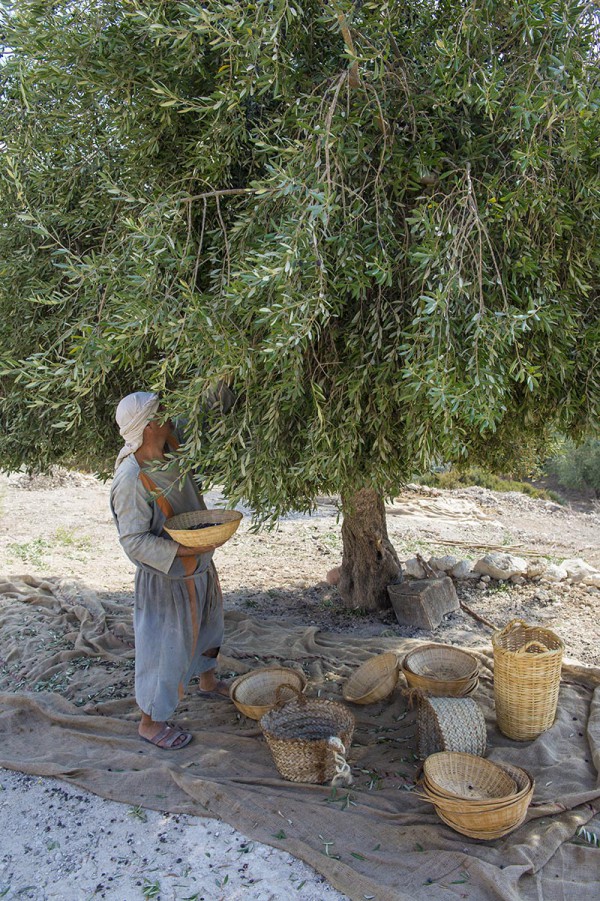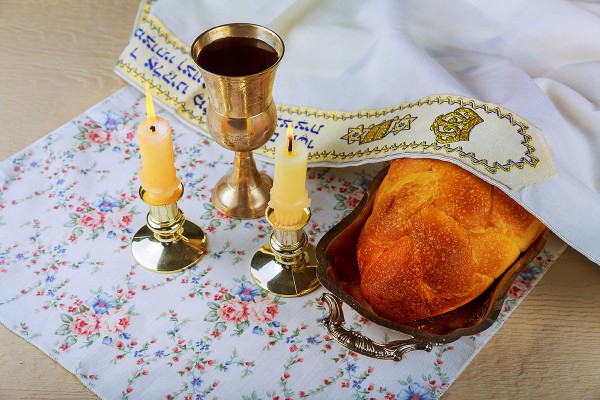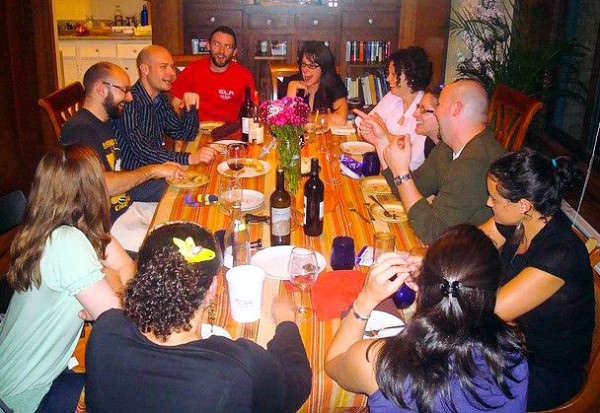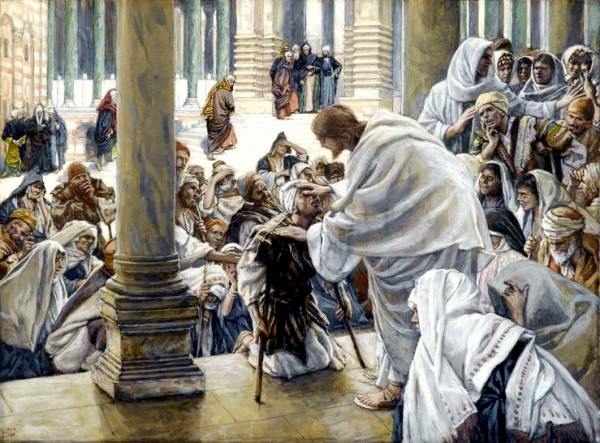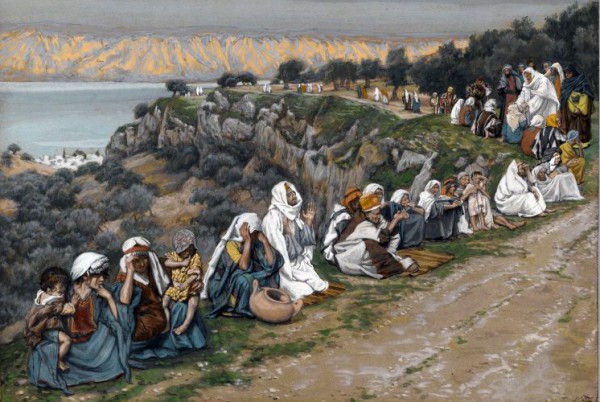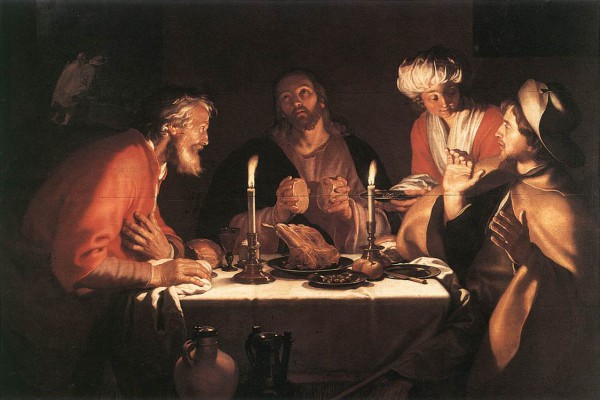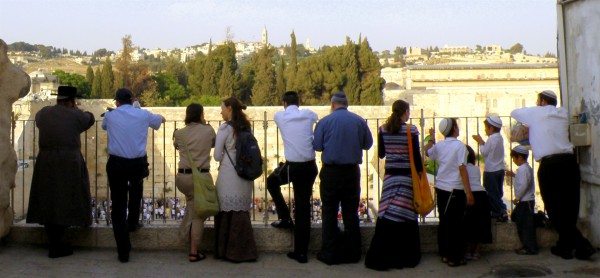
Orthodox Jewish men, women and children look toward the Western Wall, Temple Mount, and Mount Scopus. (Photo by Ron Almog)
“If you keep your feet from breaking the Shabbat and from doing as you desire [chephets] on My holy day, if you call the Shabbat a delight [oneg] and the Lord’s day honorable… then you will find your joy in the Lord. (Isaiah 58:13–14)
Many Believers ask us: “What am I supposed to do on Shabbat?”
The Prophet Isaiah tells us: “Call the Shabbat a delight.”
The word that Isaiah uses for delight is oneg in Hebrew. But there are other words that also mean delight.
So, what is the difference?
Hebrew words, such as chephets in Isaiah 53:13 relate to a desire or longing for something. It is sometimes associated with the pleasure of work performed (see Proverbs 31:13).
Other Hebrew words speak about being joyful and pursuing entertaining experiences, but oneg is different.
Oneg is a masculine word that means an exquisite, delicate, dainty delight.
It is about coming near to something new and wonderful, such as when a groom approaches his bride for the first time under the chuppah (marriage canopy).
The union is an unexpected blessing of wonder, awe, and intimate beauty.
This blessed time of the Lord comes every seventh day, completing the week.
The number seven itself represents completion and is one of the meanings of the word Shabbat.
We are to approach this blessed day as if we are receiving something extraordinary and new, because it is.
Invigorating Our Time on Shabbat
Oneg is considered a mitz’vah, which actually means in accordance with law, but is commonly spoken of as a good deed.
We are told not to pursue our own pleasure (chephets in Isaiah 58:13).
It is not a day of abstinence from pleasure, either. On the contrary, the Sabbath is “a call to the elevating use of leisure,” writes British Rabbi Solomon Schonfeld, who saved thousands of Jewish People during the Holocaust.
Does that mean that we sit around and do nothing all day?
“The purpose of holidays is not to kill time; that would be murder, for life is time. Sabbath days should invigorate time” writes Schonfeld. (The Universal Bible, p. 17)
How do we call the Shabbat a delight in this context?
Famous American Rabbi, theologian and philosopher, Abraham Joshua Heschel wrote the following in his 1951 book, The Sabbath:
“Six days a week we wrestle with the world, wringing profit from the earth; on the Sabbath we especially care for the seed of eternity planted in the soul. The world has our hands, but our soul belongs to Someone Else. Six days a week we seek to dominate the world, on the seventh day we try to dominate the self. (p. 13)
Our own interests and pursuits often distract us, so the Scripture guides us to restrain ourselves.
Scripture restrains us from performing melachah, which in Hebrew means work.
This particular form of work can relate to one’s profession, but it is found primarily in connection with the Shabbat and in reference to creative work, the kind of work that exercises control over our environment, as when God created the universe with His own Words. (see melachah in Exodus 20:10; Leviticus 23:3; Deuteronomy 5:14)
Melachah might involve forming, separating, mixing, or altering as God did when He created the heavens and the earth.
Additionally, the Torah specifically forbids certain forms of melachah: plowing, harvesting, lighting a fire, gathering, and carrying. (Exodus 34:21, 35:3; Numbers 15:32–36; Jeremiah 17:21–22)
As creative beings made in the image of God, we are called to imitate our Creator in all ways, including creating for six days and not creating on the seventh.
That leaves us with much leisure time on this seventh day. What are we to do with it?
Let’s look at some examples in Jewish tradition and in the life of our Messiah Yeshua for how to elevate our leisure and invigorate our time on Shabbat.
Jewish Traditions of Delight
The Talmud (Jewish commentaries and oral laws) contains 157 chapters or subsections on how to stop creating and use our leisure time on the Sabbath.
Later, in the Mishneh Torah, Maimonides (12th century sage also called the Rambam) gives us his ideas of how we are to approach the Shabbat. He writes that we should wash ourselves, wrap ourselves in tzitzit, sit with proper respect, and greet the Shabbat as we would greet a king (M. Shabbat 30:2).
In greeting a king, Maimonides goes on to say, that we should wear clean clothes and dress differently on the Shabbat, and we should not fast but feast (M. Shabbat 29–30:3).
Delighting in the Shabbat has evolved over time and is expressed today in Jewish and Messianic communities in more modern but still traditional ways, especially when it comes to fellowship and food.
Delighting in Fellowship and Food
Meals have always played a great part in most of Jewish history, and feasting on Shabbat is no different. When thinking about how to make the Shabbat a delight, for instance, the Talmud teaches:
“… through eating spinach, large fish and heads of garlic. Rav Pappa says that it may be fulfilled even with something small like little fish fried in oil and flour.” (Talmud Shabbat 118b)
Today, in Jewish and Messianic communities, the concept of feasting on Shabbat has evolved from these simple pleasures into a communal Shabbat Oneg (Sabbath Delight) meal after services.
Ensuring that the mitzvah of not working / creating on Shabbat is kept, congregants bring hot food in slow cookers, which they prepared before sundown on Friday evening.
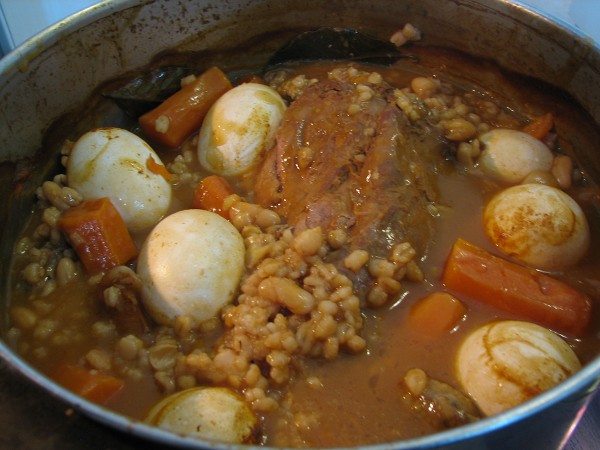
Cholent, a slow-cooked Shabbat stew, can include a variety of ingredients such as this stew with potatoes, meat, barley, and carrots. (Source: Wikipedia)
In lieu of fried fish and garlic, today’s oneg might, fortunately, also include treats like hummus and chips, bagels and lox, pre-made kugel dishes, sandwiches, salads, cheese platters, and an array of yummy desserts!
No work-related topics are discussed during this time, as it is all about joyous chavurah (fellowship)—although chavurah over meals is not the only way to make the Shabbat a delight.
Jewish communities enjoy Shabbat leisure quite literally—delighting in time away from the stresses of the workplace and the general hubbub of everyday life. They use the time to recharge one’s spiritual batteries with family time, an afternoon nap, or perhaps even a refreshing walk in nature.
These are our modern, traditional expressions of Oneg. But how did Messiah Yeshua invigorate the time on His Shabbats?
Delighting in Restoration and Love
Genesis tells us that the Creator ceased the work He was doing—the work of creating—on the seventh day.
Yeshua also never “created” on Shabbat—He restored.
He restored the blind, deaf, and lame, the lepers, infirmed, and even the dead to their originally-intended spiritual and physical health.
This caused much controversy among some of the Jewish leaders (Pharisees) in power at the time, since healing seemed to be “working” on the Shabbat. In fact, they told the crowds to go away and come back to be healed on another day (Luke 13:14).
Yeshua’s acts of healing blessed others with unimaginable “delight” while still being perfectly in accordance with Shabbat laws as written in the Torah. He never deviated from being an exemplary Jewish man.
By blessing others with love and mercy on Shabbat, Yeshua demonstrated that the wellbeing of others is to be considered first when delighting in this holy day.
“For it is love that I seek, and not sacrifice; knowledge of God more than burnt offerings.” (Hosea 6:6)
We can imitate the love of our Messiah by visiting the sick and imprisoned, feeding the hungry, clothing the homeless, sending an encouraging note to a person in pain, praying for a lost soul, gently touching someone.
As Yeshua said, when we do acts of love “for one of the least important of these brothers of mine, you did it for Me.” (Matthew 25:40)
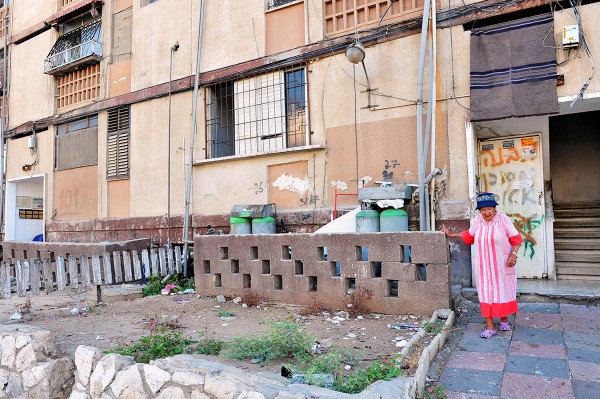
One in five Israelis live in poverty and need our love and support, such as this women in the southern Israeli town of Kiryat Malachi.
Delighting in Messiah
“The large crowd listened to Yeshua with great delight.” (Mark 12:37)
Perhaps the most meaningful way to delight in Shabbat is by refreshing our relationship with our Messiah. How do we do this?
By listening to and studying the Word of God, who is Messiah Yeshua Himself (John 1:1), and by worshipping Him through prayer, music, and dance.
Some Believers practice traditional Shabbat rituals developed by Rabbis over the centuries, but they do so because they find Yeshua in them.
For example, lighting Shabbat candles just before sun sets on Friday evening is a tradition that reminds some Believers of how Yeshua is the light of the world and that they are to be a light to the nations.
As they recite the traditional blessing over the challah (bread), they are mindful not only of the bread that God provides from the earth, but that Yeshua is the Bread of Life, which God provided from heaven.
More importantly, when we freely bless others with our love, mercy, time, talents, and gifts on Shabbat as Yeshua did, we remind ourselves of how blessed we are to receive God’s free gift of love and mercy through Messiah Yeshua.
“For the wages of sin is death, but the free gift of God is eternal life in union with the Messiah Yeshua our Lord.” (Romans 6:23)
We might not all be able to heal crowds of sick people from their diseases and pains, but we can call the Shabbat a delight by bringing mercy and love, blessing and joy to others, and refreshing our souls in the presence and peace of our Messiah Yeshua.
That is true chavurah (fellowship). That is elevating leisure. That is invigorating our time.
What better Shabbat Delight can there be?








